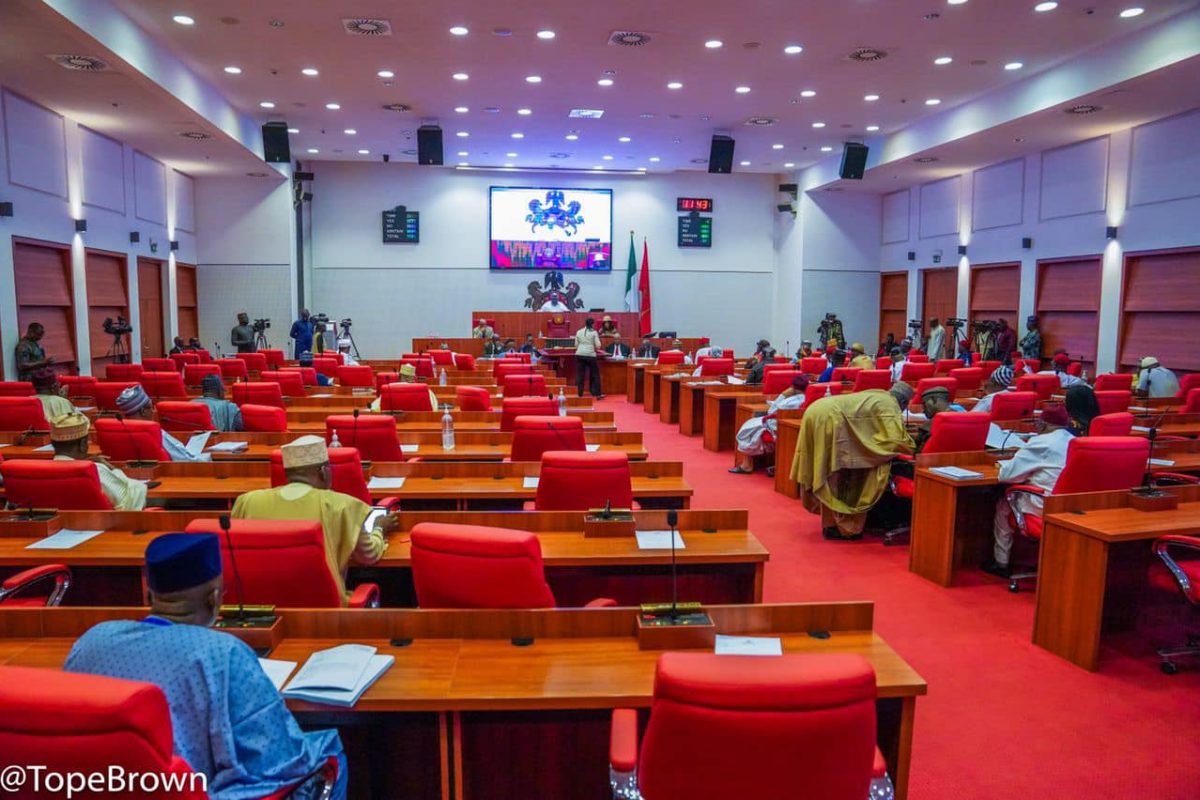At May Day Dialogue put together by OrderPaper Nigeria, panellists discuss the way forward for Nigeria’s health sector amid biting challenges of brain drain and in light of controversies surrounding a proposed amendment to the Medical and Dental Practitioners Act 2004
READ ALSO: EXCLUSIVE: Medical/Dental License Bill Sponsor, Rep Johnson speaks

As a pragmatic step towards curbing the issue of brain drain in Nigeria’s health sector, the federal and state governments have been urged to prioritise the remuneration of medical personnel and categorise them as essential workers.
Chairman of the Senate Committee on Health, Senator Ibrahim Oloriegbe (APC, Kwara Central), made the call earlier in the week during a special episode of the OrderPaper Parliamentary Engagement Nigeria (OPEN) Dialogue held on Twitter to commemorate International Workers Day. A dialogue that came against the background of a controversial and ongoing amendment to the Medical and Dental Practitioners Act 2004, proposing a five-year mandatory service for Nigerian-trained doctors before they are granted operating licenses.
Speaking as a panellist during the virtual dialogue, Senator Oloriegbe argued that funding the education of health workers and having them mandatorily serve for like three years after graduation is not likely to solve the issue of medical personnel shortage. Submitting that every issue has it own merits and demerits, he noted that the issue of human resources in the health sector is a global challenge given that migration (including internal migration where health professionals tend to switch occupations) has been the bane of the matter.
READ ALSO: Medical/Dental License Bill: “Why we opposed the legislation” – NARD VP
The Kwara lawmaker cited the instance of Egypt, where the government funds the education of medical workers, yet a substantial number of medical personnel practising in countries like Saudi Arabia are Egyptians. He thus argued that the issuance of bonds does not solve the challenge judging from the Egyptian experience.
According to the lawmaker, there is a challenge of general disinterest in the study of the sciences, just as he advocated the need for doctors to be removed from the regular salary scale and placed in a special category as is done to workers in Government-Owned Enterprises (GOEs). Such a move he stressed will not only lead to the retention of medical practitioners within the sector but also encourage enrollment in medical education and tackle the issue of brain drain.
Senator Oloriegbe further restated the need for government to provide adequate remuneration and provide a suitable working environment for medical practitioners.
READ ALSO: MVP Hall of Fame: 20 National Assembly Members make Semi-Final shortlist
In her contributions, Julie Mogbo, a family nurse and thought leader in the Nigerian health sector, stated that the migration of medical personnel could not be totally checked as it has been in practice since immemorial.
Noting that due to the challenges facing the health sector in Nigeria, a sizeable population of nurses today have plans to travel out of the country on their wishlist, which she says calls for serious concern. With adequate motivation and the right working environment for the health practitioner, a substantial number of nurses will be driven by patriotism to stay put in the country and render their services.
Julie further argued that a continuous motivation of health sector personnel and periodic roundtable consultation between practitioners in the private sector and regulatory agencies will help stem the tide of migration.
“A report recently carried out put about 58,000 nurses leaving in Nigeria to other countries in search for greener pastures. According to global health practice, a nurse ordinarily should not be taking care of more than 6 patients at a time but the contrary is the case in Nigeria where a nurse manages over a thousand patients in gross violation of the WHO standard operating procedure.”
READ ALSO: Senator Oloriegbe: ”Medical/Dental License Bill violates Right to Freedom of Movement”
She noted that with 125,000 nurses in Nigeria at current, such a number is grossly inadequate to cater to the health demands of it citizens despite the fact that the Nurses and Midwifery Council of Nigeria churns out not less than 7,000 nurses yearly. She further stated that there is a dire need to stimulate more enrollment in the study of the course so as to have adequate manpower.
The OPEN (OrderPaper Parliamentary Engagement Nigeria) Space dialogue held on Monday is an initiative of OrderPaper Nigeria, the country’s pre-eminent legislative/public policy think-tank. This special episode featured the Chairman of the Senate Committee on Health, Senator Ibrahim Oloriegbe (APC, Kwara), Dr Nnamdi Nd-Ezuma; 1st Vice President 1, Nigerian Association of Resident Doctors (NARD), Julie Mogbo; Managing Director of Royale Nursing Consults and Queeneth Henshaw; a Lawyer and Human Rights Advocate.
Centered on ‘Curbing Brain Drain in Nigeria’s Health Sector,’ Temidayo Taiwo-Sidiq, a Senior Programme Executive at OrderPaper Nigeria, moderated the conversation. It, amongst other subjects, spotlighted a recent bill that scaled second reading in the House of Representatives seeking to amend the Medical and Dental Practitioners Act, CAP. M379, LFN, 2004.



